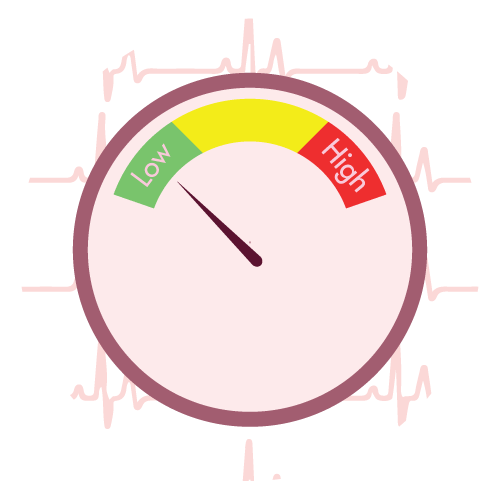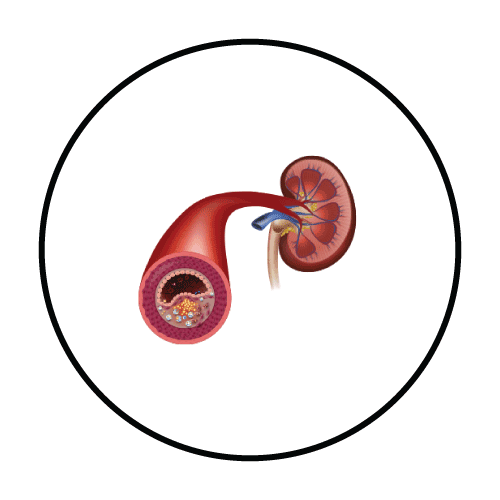| Name | Enalapril Maleate |
| Classes |
Cardiovascular Agent Antihypertensive ACE Inhibitor |
| Diseases |
Cardiovascular Disease Hypertension (High Blood Pressure) |
Enalapril Maleate
Enalapril competitively inhibits the conversion of angiotensin I (ATI) to angiotensin II (ATII), thus resulting in reduced ATII levels and aldosterone secretion. It also increases plasma renin activity and bradykinin levels.
Enalapril is indicated for the following conditions-
- Heart failure
- Hypertension
- Left Ventricular Dysfunction After Myocardial Infarction
- Diabetic Nephropathy
- Elanapril is available as tablets and can be taken without any regards to meals.
- Hypertension: In elderly patients or patients with renal impairment, enalapril is initially given at a dose of 5 mg once daily if taken alone, or 2.5 mg once daily if used in combination with a diuretic. The typical maintenance dose is 10-20 milligrams taken once a day. It can be raised to a maximum of 40 mg once daily in severe hypertension.
- Heart failure (adjunct) and asymptomatic left ventricular dysfunction: 2.5 mg at first, under medical supervision. The usual maintenance dose is 20 mg per day, divided into 1-2 doses.
- Dosage adjustment for renally impaired patients: Because hypotension and (occasionally) renal failure have been observed, blood pressure and renal function should be continuously monitored both before and after starting Enalapril treatment. If possible, individuals taking diuretics should reduce their dose before starting Enalapril medication. The occurrence of hypotension following the first dosage of Enalapril does not indicate that hypotension will return throughout chronic Enalapril medication and does not rule out the drug's continuing usage. It's also a good idea to keep an eye on your potassium levels and renal function.
The side effects commonly caused by enalapril are as follows-
- Headache
- Dizziness
- Nausea
- Hyperkalemia
- Angioedema
- Muscle cramps
- Hypotension
- Enalapril, like all vasodialators, should be taken with caution in patients who have a blockage in their left ventricle outflow tract.
- In vulnerable individuals, the inhibition of the renin-angiotensin-aldosterone syst function may be expected.
- Patients with renal insufficiency and diabetes mellitus were found to develop hyperkalemia.
Contraindication
Enalapril is contraindicated in patients who are hypersensitive to this product or any other angiotensin-converting enzyme inhibitor (e.g., a patient who has experienced angioedema during therapy with any other ACE inhibitor). Such as-
Enalapril is contraindicated in-
 Bangla
Bangla English
English












